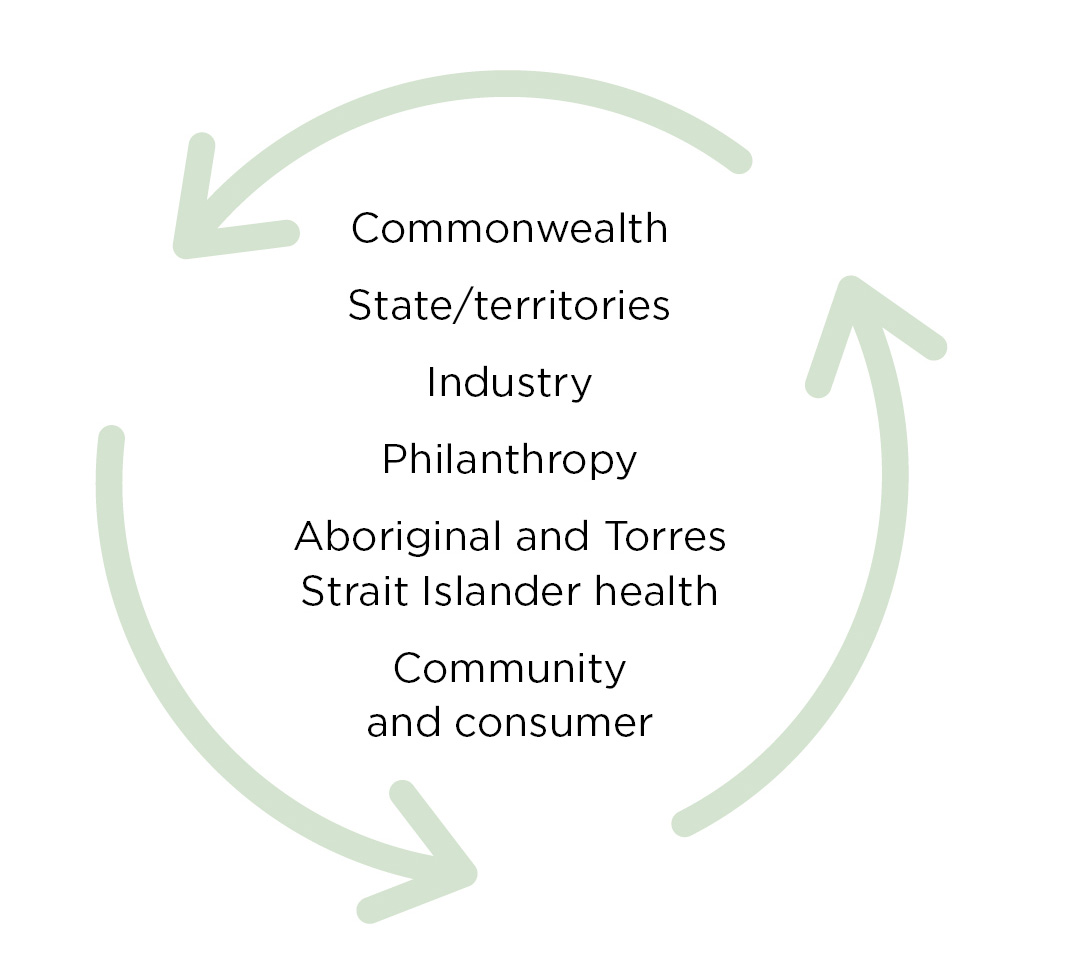Establishing a National Strategy Advisory Council: Ensuring success of the 10-year National Strategy
Table of contents
This is a draft of the National Health and Medical Research Strategy.
Why governance is essential for the National Strategy
The National Strategy has a bold, long-term vision to transform Australia’s health and medical research landscape over the next decade. With a broad scope – spanning multiple Focus Areas and Enablers – it seeks to align research efforts with national health priorities, foster innovation and ensure equitable translation of health outcomes for all Australians.
Health and medical research is inherently multifaceted, involving diverse stakeholders including governments across jurisdictions, research institutions, healthcare providers, industry partners, philanthropy and communities. A governance structure is necessary to ensure that activity arising from the National Strategy is sustained, and does not become fragmented, duplicative, or misaligned with its values and strategic Goals.

Managing a 10-year framework
While the National Strategy is framed over a 10-year horizon, it is not static. It is designed to evolve through implementation milestones that will mark progress and guide adjustments. These milestones will serve as checkpoints that ensure the National Strategy remains relevant and impactful, to:
- Evaluate the effectiveness of interventions.
- Reassess priorities based on new evidence or changing health needs.
- Incorporate technological advances and policy shifts.
- Engage stakeholders in continuous improvement.
The National Strategy Advisory Council will act as both a guardian and a catalyst, ensuring the National Strategy stays on course while facilitating innovation and responsiveness.
Inter-governmental coordination
The National Strategy Advisory Council will seek to complement the outcomes of the SERD and may potentially be supported through existing arrangements such as the Health Ministers Meeting.
Establishing a National Strategy Advisory Council could enable transparent oversight of the National Strategy, bringing together the range of interests across the health and medical research sector (government and non-government) to provide:
- Strategic oversight: Ensuring that all Actions across Focus Areas and Enablers are coherent and contribute to the overarching vision.
- Coordination: Facilitating collaboration across sectors and jurisdictions, and harmonising efforts to avoid silos.
- Accountability: Monitoring progress, evaluating outcomes, ensuring responsible use of resources, and upholding values.
- Responsiveness: Identifying emerging challenges and opportunities and adapting the strategy accordingly.